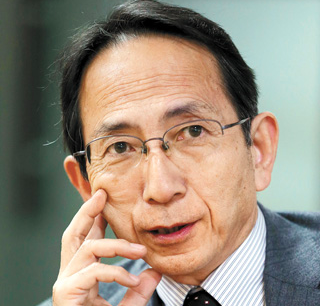AGI News
Remembering Japanese Journalist Yoshibumi Wakamiya, An Advocate for Reconciliation in Northeast Asia

Yoshibumi Wakamiya (1948-2016), prize-winning Japanese journalist and author who worked throughout a long and distinguished career to promote reconciliation between Japan and its neighbors, passed away on April 27 in Beijing, where he had been participating in track two dialogues on Northeast Asian historical problems. In February 2011, Wakamiya gave a keynote address at a conference in Washington organized by AGI on the positive role the news media can play in the resolution of history-related disputes. At the time he touched on some of his own achievements. The joint hosting of the 2002 Football World Cup by Japan and South Korea was first proposed in 1995 by Wakamiya on the pages of the Asahi newspaper, which at the time had a circulation of about 9 million. Appointed editor-in-chief of the Asahi, Wakamiya broke new ground in 2006 by inviting Tsuneo Watanabe, de facto owner of conservative rival Yomiuri (circulation 10 million) to take part in a dialogue critical of Prime Minister Junichiro Koizumi’s visits to Yasukuni Shine, where the souls of 14 Japanese convicted of war crimes are consecrated. The dialogue resulted in a long-running series of articles on war responsibility later published in book form by both the Asahi and the Yomiuri. But not all of Wakamiya’s efforts to encourage regional reconciliation turned out as intended. Wakamiya received death threats after publishing a whimsical piece about a “dream” in which Japan relinquished its claims over disputed islets occupied by South Korea in return for their being named “Friendship Island” where Japanese fishermen who had been barred were welcomed back. After leaving the Asahi, Wakamiya, one of few Japanese reporters to learn Korean, divided his time between Tokyo where he was a visiting scholar at a leading think tank, and Seoul, where he occasionally filed stories as a columnist at the Dong-A newspaper.







